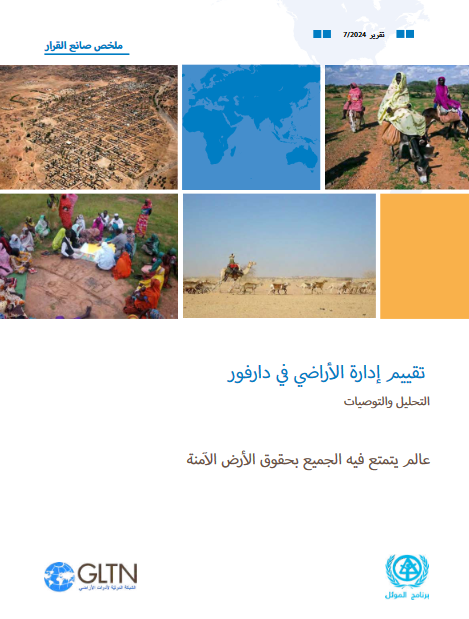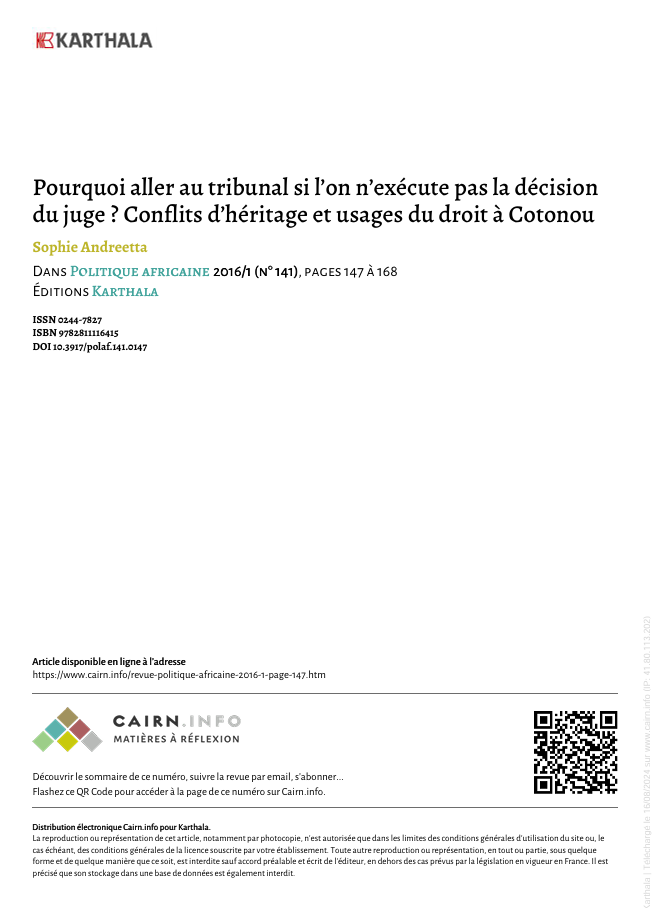Darfur Land Administration Assessment Report - Arabic Brief
In August 2020, the UN-Habitat Sudan Country Programme and the Global Land Tool Network (GLTN) published the “Darfur Land Administration Assessment: Analysis and Recommendations” report, developed in close cooperation with the United Nations Country Team of Sudan, the United Nations - African Union Hybrid Operation in Darfur (UNAMID) and the Darfur Land Commission.



